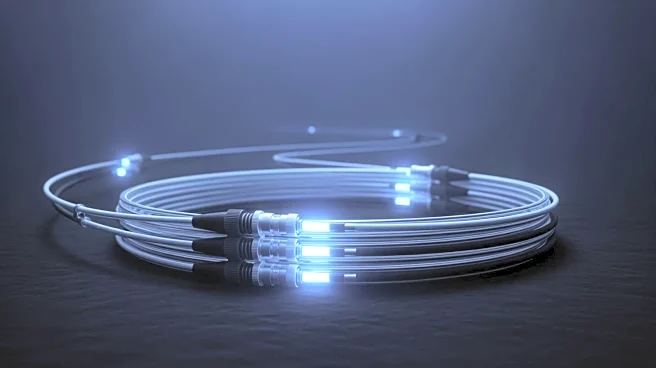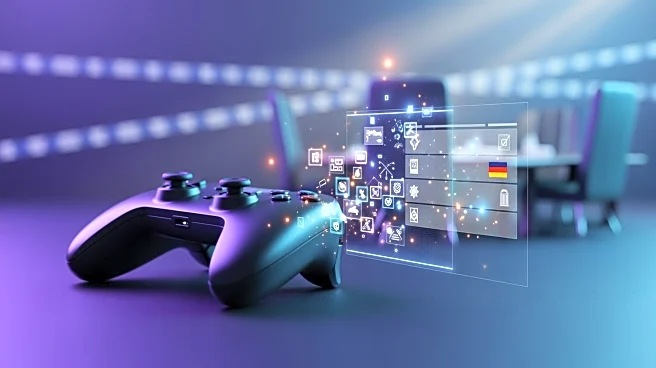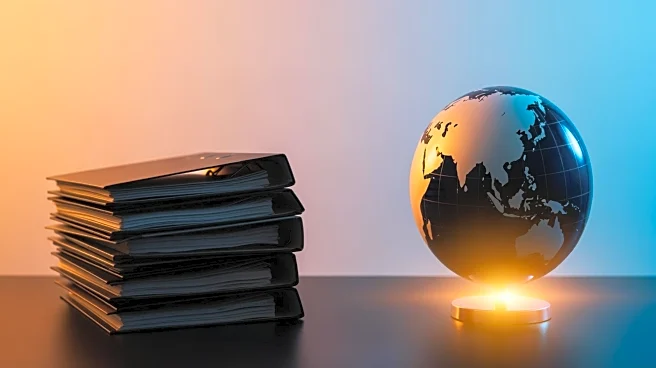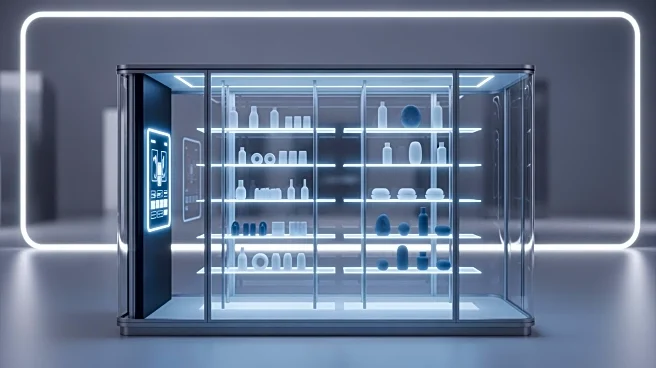What's Happening?
Meta, along with its consortium partners, has announced the completion of the core 2Africa subsea cable system, which is now the world's longest open-access subsea network. This system connects East and
West Africa in a single loop and links the continent to the Middle East, South Asia, and Europe, covering 33 countries. The 2Africa cable, developed by a consortium including Meta, Bayobab (MTN Group), center3 (stc), CMI, Orange, Telecom Egypt, Vodafone Group, and WIOCC, spans approximately 45,000 kilometers. The system incorporates advanced engineering features such as spatial division multiplexing (SDM) and supports up to 16 fiber pairs, doubling the capacity of older systems. It also uses undersea optical switching for flexible bandwidth management. The increased capacity is expected to reduce wholesale bandwidth costs and support regional cloud, data center, and 5G growth.
Why It's Important?
The completion of the 2Africa subsea cable system is a significant milestone in global connectivity, particularly for Africa. By increasing bandwidth capacity and reducing costs, the system is poised to strengthen data center and 5G ecosystems across the continent. This enhanced connectivity is expected to add billions to Africa's GDP, fostering economic growth and development. The project also highlights the collaborative efforts of major tech companies and telecom operators in bridging digital divides and improving internet access in underserved regions. As the system supports connectivity for over 3 billion people across Africa, Europe, and Asia, it represents a crucial step in global digital infrastructure development.
What's Next?
Meta is planning an even more ambitious cable system, Project Waterworth, which aims to connect five continents. This 50,000-kilometer submarine cable will be the world's longest, featuring 24 fiber pairs and connecting regions such as the U.S., India, Brazil, and South Africa. The project underscores Meta's commitment to expanding global connectivity and enhancing internet infrastructure. Additionally, Google has unveiled Dhivaru, a new Trans-Indian Ocean subsea cable system, further indicating the ongoing efforts by tech giants to improve global internet access.
Beyond the Headlines
The development of the 2Africa subsea cable system raises important considerations regarding the ethical and environmental impacts of such large-scale infrastructure projects. The engineering work involved deeper burial and routes designed to avoid seabed hazards, highlighting the need for sustainable practices in undersea construction. Furthermore, the project required coordination across 50 jurisdictions, emphasizing the complex regulatory landscape and the importance of international cooperation in advancing global connectivity.









